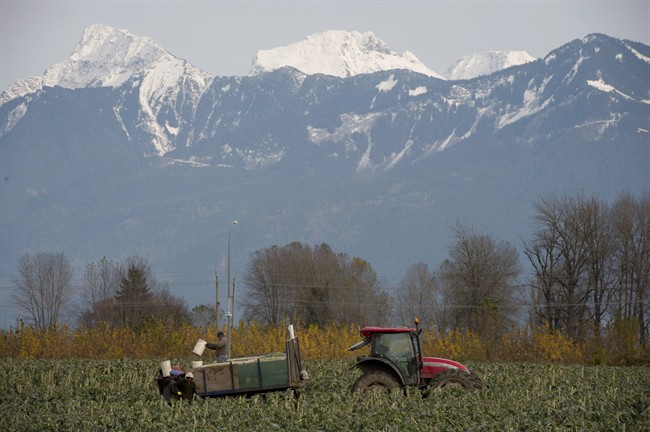CALGARY — Decades of boom-and-bust commodity prices, worker shortages and being at the mercy of the weather has virtually removed the word optimism from the vocabulary of many farmers in Alberta and across Canada.

So it shouldn’t come as a surprise that many are looking at the current run of low fuel costs with a certain degree of suspicion.
“At the moment things are good right now,” said Lynn Jacobson, president of the Alberta Federation of Agriculture, who also farms 600 hectares near Enchant in southern Alberta.
“If it lasts into spring is going to be another question. In the long run, though, you’ve got to think about all the infrastructure that relies on that fuel price and if some of that stuff is delayed or not done that could hurt us in the future too.”
The recent plunge in fuel prices has been a welcome relief across the agricultural sector, helping ease the pain of low grain prices for growers and boosting profits for cattle ranchers.
One of the biggest costs on the farm is fuel for farm equipment. Diesel fuel has dropped significantly to less than $1 a litre on the Prairies.

Get weekly money news
“It’s significant on a larger farm if you can lower your fuel costs by a third,” said Gary Stanford, who farms 2,000 hectares southwest of Lethbridge.
But there is doubt.
“If the oil price stays down too low, and the federal government can’t afford to keep their budgets going, and they start looking for revenue, I’m hoping they’re not going to try and put this on the back of farmers and raise our taxes,” Stanford said.
“The oil seems like it’s a real benefit when it’s low but there could be some harm in the long term.”
Joel Jackson is an analyst with BMO Capital Markets who focuses on fertilizer companies. He said fuel prices aren’t what will make or break a farmer’s bottom line. Fertilizer and seeds are among the biggest expenses.
“There’s some tailwind from lower energy prices, but it’s easily offset by weather and yield volatility.”
In addition, the price of some crops, such as corn, have historically risen and fallen in tandem with oil prices, Jackson said.
Stanford would like to see lower fuel costs reduce the cost of transporting grain to market by rail and truck.
Jacobson said the savings could be substantial if low prices continue. He spent between $50,000 and $60,000 on fuel last year.
“With fuel prices down where they are, for our farm it will probably result in a 20 or 25 per cent reduction in the price of what we paid for gas and fuel last year. It’s a major saving,” he said.
“We could save potentially $10,000 this year.”

Comments